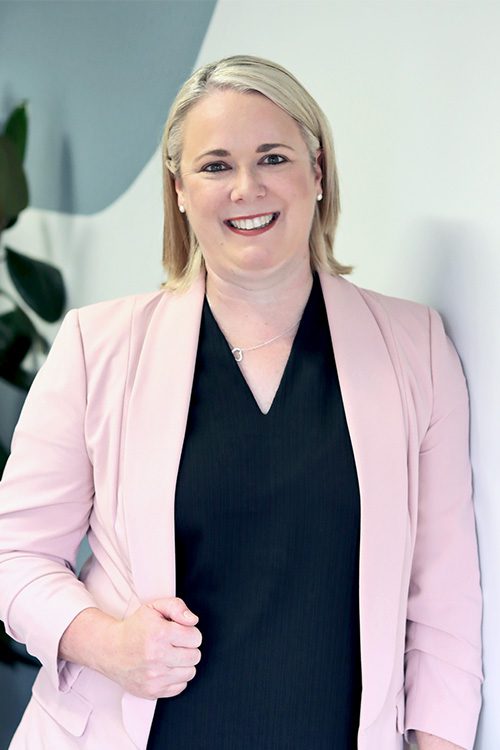It’s that time of year when everyone seems to be making New Year’s resolutions. Often personal New Year’s resolutions relate to exercise, diet, and finances. But what about your business? It’s time to take the opportunity to review your business’ financial health and look for ways you can make improvements in 2021.
I have put together five key New Year’s resolutions for your consideration in 2021.
1. I will work on my business, not just in my business.
Business owners tend to spend a lot of time working in their business, earning money, because either that’s what they’re trained to do or what they’re good at. However, it’s important to remember why you went into business on your own or with others – perhaps for financial freedom, to run your business your own way and be better than your competitors. It’s for these very reasons you should take a step back this New Year and set some goals for your business.
Once your goals are set, you need to do some business planning and establish timeframes around each goal to keep you and/or your business partners accountable in working towards achieving the goals you have set. You may also wish to work with your accountant or adviser on the strategies and actions required to achieve your goals.
2. Be aware of Payroll Issues
Being unaware of payroll issues that your business may face can lead to loss of income or monetary penalties that can be avoided. Critical items to be aware of include:
- Paying bonuses to staff – your business is entitled to claim a tax deduction for the bonus expense in the year, so long as your business has committed to the liability. Practically, you need to ensure staff bonuses are documented (in minutes of a director’s meeting or similar) and that the calculation method is fixed. This applies to both staff and director bonuses for a particular period.
- Paying employees electronically – ensuring your bookkeeping software is up to date with electronic payment options to ensure seamless payments to employees as well as payments in relation to employee super and ensuring you meet SuperStream requirements.
- Ensuring you are classifying people correctly for payroll purposes– the outcome of whether your people are classified as employees, independent contractors or consultants in your bookkeeping software is very important. By misclassifying someone, you may be losing money or incorrectly calculating their entitlements, which may lead to incurring further penalties.
- Ensuring you are paying superannuation on time – at the end of each quarter, you have 28 days to ensure you have paid your employee’s superannuation to their super fund. This is important as if the payment is made on the 29th or 30th, unfortunately, you are unable to claim a tax deduction for the superannuation payments. Further, you must pay the superannuation guarantee charge (which is non-deductible) and lodge an SGC statement with the ATO.
3. Ensure you are using an appropriate bookkeeping software
You are unable to correctly review your numbers unless your numbers are up to date. As such, you should want to make this as easy as possible for you and your business. You may wish to consider using a cloud-based bookkeeping software such as Xero or other online bookkeeping products, to which you, your bookkeeper and your accountant have access.
Further to moving to a cloud-based bookkeeping system, you should consider moving from a paper-based filing system to an electronic filing system. This allows you to upload documents to your bookkeeping software so your bookkeeper can allocate expenses accordingly, record GST appropriately, then make the document available to your accountant for year-end financial statement preparation purposes.
To ensure maximum efficiency, ask your accountant for feedback in relation to your bookkeeping and paperwork processes to ensure what you are doing is efficient and assisting you in being able to create meaningful numbers.
4. Take an interest in your numbers
When your accountant starts talking numbers, debits and credits, it can be easy for your eyes to glaze over. However, this should not be the case in today’s times. Numbers can be reported in a variety of ways – graphs, trend charts, comparisons to prior years or prior periods. This information is important for you to be able to recognize trends and anomalies in your business.
The frequency of reviewing your numbers is also important. Reviewing your year-end financials, which may be prepared by your accountant up to 11 months after the end of the financial year, is ok. However, if you are wanting to make monthly decisions on buying equipment or employing more staff or longer-term strategic decisions, the year-end financials are not enough. Hence, you need to have your books up to date to be able to make informed decisions.
5. Talk to your accountant and plan for tax
In my experience, I have not had a client who is excited at the prospect of a “surprise” tax liability. This, amongst others, is a great reason to arrange a tax planning meeting with your accountant, upon the completion of the business’ March BAS.
In this meeting, your accountant should discuss with you your figures, plan out for the balance of the tax year and review any opportunities you could potentially take advantage of before the end of the financial year. Further, knowing your potential tax liabilities and planning 12 months in advance relieves any unpleasant surprise at tax time.
If you have any questions or would like to know more about how you can improve your business’ financial health in 2021, contact your local William Buck advisor.



















